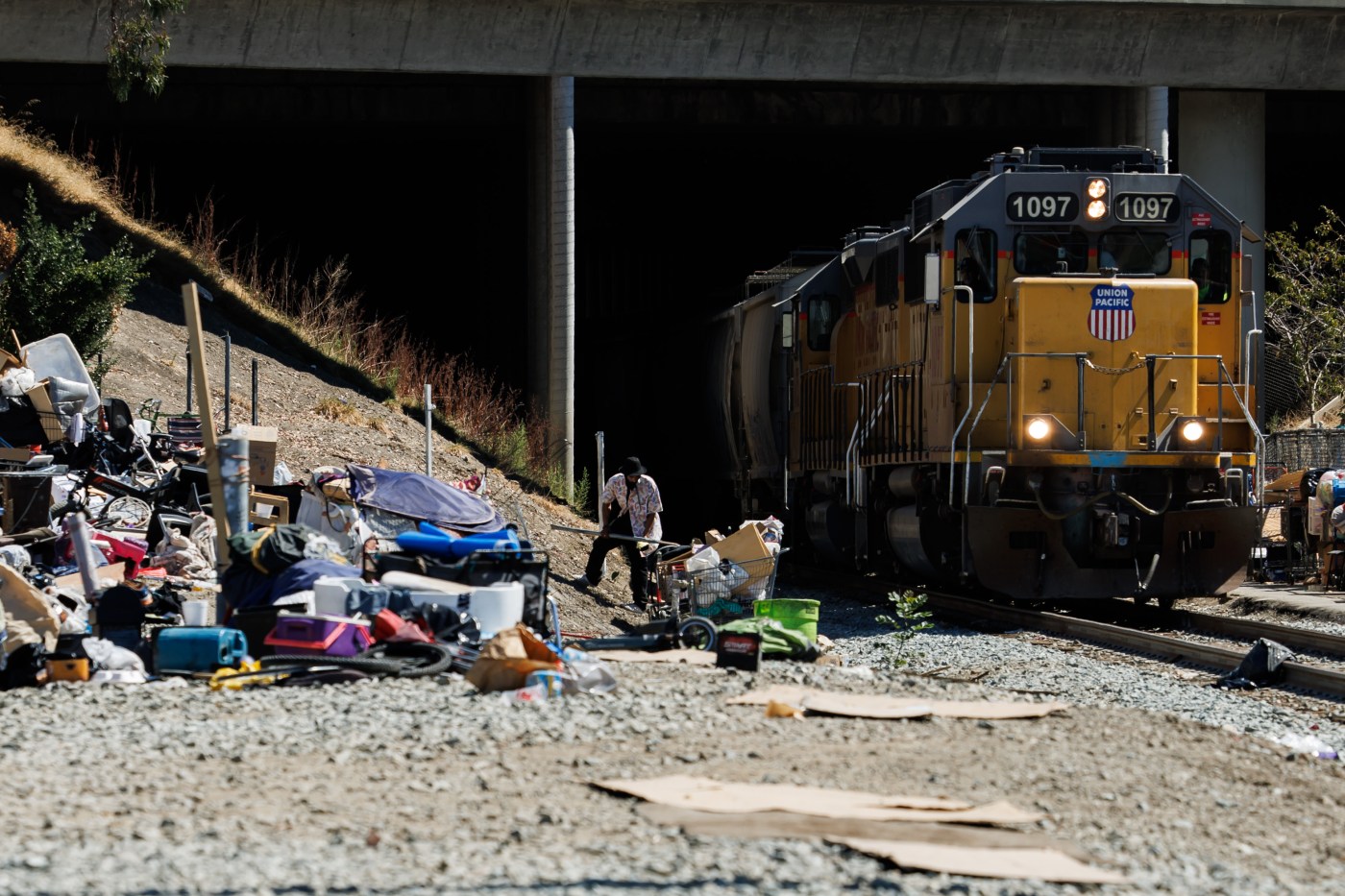
Redwood City this month became the latest Bay Area city to take action against homeless encampments, joining a growing number of local governments responding more aggressively to the issue amid increased pressure from the state.
In a 6-1 vote during its Monday meeting, the City Council approved an ordinance prohibiting public camping if shelter is available. Under the new rules, individuals who refuse to leave after two written warnings could be charged with a misdemeanor. The law allows encampments to be cleared with 72 hours’ notice — or 48 hours if they are in “sensitive areas” such as near schools or the city’s homeless shelter.
The ordinance is set to take effect 30 days after adoption.
Related Articles
President Trump’s executive order on homelessness echoes Gov. Newsom’s a year before
Federal and state cuts have complicated how Alameda County will use Measure W funds to support safety net services
Berkeley’s Homeless Response Team has room for improvement, audit finds
San Jose has just as many homeless people as it did two years ago, despite sheltering many of them
In a nation growing hostile toward drugs and homelessness, Los Angeles tries leniency
The move closely mirrors a countywide ban enacted last year by San Mateo County, though Redwood City’s ordinance reduces the financial penalty from the county’s $500 fine to $100. The city will also focus on offering diversion programs rather than immediate fines or jail time.
The only councilmember to vote against the ordinance was Chris Sturken, who expressed concern about the policy’s effectiveness.
“We’re not going to see the number of encampments drop overnight,” Sturken said. “My concern is that we’re setting ourselves up for failure — overpromising and underdelivering.”
Redwood City has seen a decline in its unhoused population in recent years.
According to a city staff report, there are currently 141 unhoused individuals in the city, down from 189 in 2024 and 205 in 2023. That figure accounts for about 15% of the county’s total homeless population.
When asked about implementation costs, Assistant City Manager Patrick Heisinger told the council it could cost anywhere from $800 to more than $20,000 per encampment cleanup, depending on size and location.
More cities across California have passed similar ordinances since Gov. Gavin Newsom in May urged local governments to take stronger action.
Newsom released a model ordinance that cities and counties could adopt to prohibit public camping and expedite the clearing of dangerous encampments. While not mandatory, the model underscored the governor’s shift toward urging local officials to act after the state invested billions in homelessness programs in recent years.
In San Mateo County, officials said no one has been arrested or charged under the 2024 ordinance. County Executive Mike Callagy, who presented the county’s progress this week, said enforcement has prioritized voluntary compliance.
In neighboring Millbrae, officials last month passed an encampment ban allowing enforcement after a single written notice, with penalties of up to $1,000 in fines or six months in jail. In February, Fremont enacted the Bay Area’s strictest anti-encampment law, with similar penalties. A controversial provision penalizing individuals who “aided and abetted” encampments was removed a month later.
Public opinion in Redwood City on the new law remains divided.
Residents in favor of the ban cited concerns about safety, trash accumulation and property crimes. Jim Crampton of the Redwood City Neighborhood Association said, “Tons of trash have grown out of homeless encampments. Current homeless encampments on the far side of Redwood Creek are along the main bike path,” which he said made residents feel unsafe.
But others worried the ordinance would criminalize homelessness.
Andrea Gil of the Youth Leadership Institute in Redwood City said she was “at a loss for words” over the council’s decision.
“The way we handle encampment intervention should be through care and dignity,” Gil said. “History has shown us that criminalization of a public health issue is never the solution — it may ripple into more trauma and distrust of the system.”
Councilmember Isabella Chu rejected that framing, saying the ordinance is aimed at helping — not punishing — those living outdoors.
“It requires that housing is available. There are multiple offers of housing given, and they’re given a lot of time,” Chu said. “There’s a lot of room and discretion to be patient with the person to ensure they’re successful in becoming sheltered.”